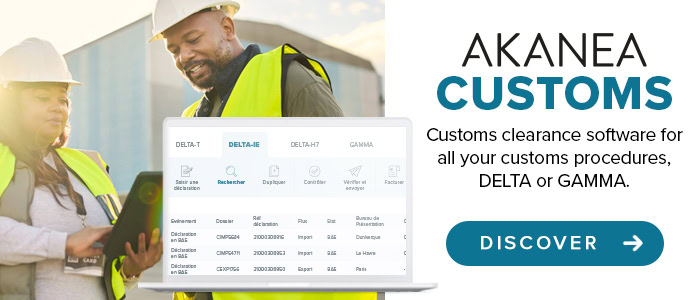
What is AEO Certification?
The AEO (Authorised Economic Operator) certification is a status granted by customs authorities to companies that meet specific reliability and security criteria in their international trade operations. It is recognised and applicable throughout the European Union (EU).
This status guarantees that the certified company upholds high standards in terms of:
- Regulatory compliance: adherence to customs and tax legislation,
- Traceability and security: stringent control over logistics flows,
- Financial soundness: ability to fulfil customs obligations.
The aim of AEO (Authorised Economic Operator) status is to make trade safer and simpler.
There are three types of AEO certification:
- The “Customs Simplifications” certificate,
- The “Security and Safety” certificate,
- The combined “Customs Simplifications and Security and Safety” certificate, which encompasses the first two.
What is the purpose of AEO certification?
- For customs authorities: AEO status allows for the identification of reliable and compliant companies, thereby reducing the risks of fraud or smuggling. This trusted partnership also contributes to securing the global supply chain.
- For companies: AEO certification simplifies customs formalities by reducing inspections and enabling access to expedited procedures, thus optimising logistics flows and minimising delays.
Who is eligible for AEO certification?
Anyone established within the EU Customs Territory (UCT) and operating in the international supply chain may apply for AEO status, including:
- Freight forwarders,
- Importers,
- Logistics providers,
- Customs brokers,
- Road hauliers,
- Exporters,
- Customs representatives.
Which countries recognise AEO status?
AEO certification is recognised within the European Union and in several third countries that have signed mutual recognition agreements with the EU, including:
- China,
- The United States,
- Japan,
- Norway,
- Switzerland.
What are the benefits of holding AEO status?
Certified AEO companies enjoy numerous benefits in their international trade operations:
- Simplified procedures: fewer physical and documentary checks, with access to streamlined customs processes,
- Improved efficiency and time savings: significantly reduced border crossing times for smoother trade flows,
- Financial benefits: exemption from providing guarantees for VAT and customs duties in certain special customs procedures,
- Enhanced competitiveness: AEO certification enhances credibility and fosters trust with clients and commercial partners,
- Lower “indirect” costs: savings on costs linked to delays, disputes, or complex procedures,
- Increased security: better control of logistics flows and supply chains, with reduced risk of fraud or theft.
How long is AEO certification valid?
AEO certification is valid indefinitely. However, ongoing compliance is monitored through a follow-up audit, which must be conducted within a maximum of three years.
What are the steps to obtain AEO certification?
- Self-assessment
AEO status is granted following a self-assessment by the company to evaluate its level of compliance with AEO requirements. Applicants must complete a self-assessment questionnaire (SAQ) comprising approximately 250 questions.
- Definition of corrective actions (optional)
In case of discrepancies or non-compliance, a specific action plan should be implemented to address identified issues. - Submission of the application
The application and completed SAQ must be submitted to the customs authority, who will then assess the admissibility of the file. - Customs audit
Customs officials will conduct an on-site audit. It is essential to prepare internal documents and processes in advance to demonstrate compliance. The audit will focus primarily on:- Traceability of logistics flows,
- Management of internal procedures,
- Security measures in place.
- Customs decision
Following the audit, customs will issue a detailed report. If all requirements are met, AEO status is granted!
Get support with your AEO certification
AKANEA offers comprehensive support for all companies, regardless of sector, throughout the AEO certification process.
We begin with a thorough audit of your internal processes to identify gaps and propose appropriate improvements. Our experts guide you through achieving compliance with customs requirements, right up to the final audit before the certification application.


